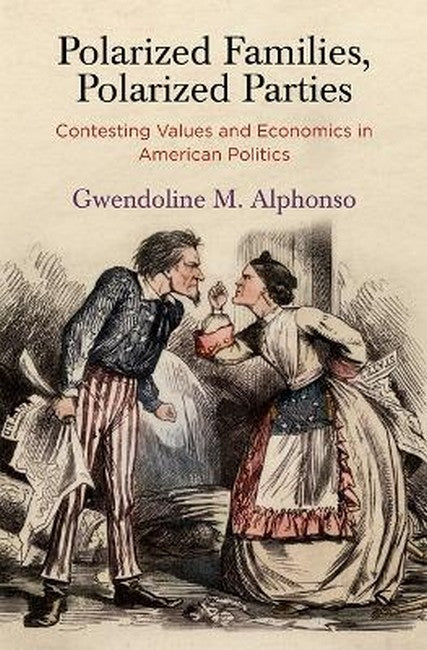Gwendoline M. Alphonso is Associate Professor of Politics at Fairfield University.
Description
"Riveting, powerful, and path-breaking. Gwendoline Alphonso develops a new way to understand parties, politics, and American political development. Polarized Families, Polarized Parties explores how family-as ideal, idyll, value system, rhetorical frame, and trope-came to play a central role in national party conflict. As Alphonso shows, different views of the good family lead to differences that define partisan conflict on everything from social values to economics. Fascinating, creative, thought provoking, meticulously researched and highly recommended." - James A. Morone, author of Hellfire Nation "Skillfully combining political science and history, thick description and empirical data, and top down-bottom up vantage points, Polarized Families, Polarized Parties sheds new light on the mainsprings of American politics. Rejecting the conventional wisdom that party conflict is a contest over the size of government, Gwendoline Alphonso portrays a century long battle for the power to define the meaning, function, and purpose of the family-a Manichean struggle that animates the raw and disruptive partisanship of our political time." - Sidney M. Milkis, University of Virginia "Gwendoline Alphonso complicates party ideology on the basis of a phenomenon that has gone largely unnoticed in political science literature: the shifting position of the family. Her book reveals the dynamics within parties that cause descriptions and classifications of the family to emerge, separate, or converge. Polarized Families, Polarized Parties demonstrates how regional differences in family experiences influence legislators and the stories they tell." - Carol Nackenoff, Swarthmore College "Polarized Families, Polarized Parties deepens our understanding of the role that family plays in party politics. Gwendoline Alphonso masterfully illuminates how definitions of family have been crucial to partisan policy debates since the beginning of the twentieth century." - Priscilla Yamin, University of Oregon

